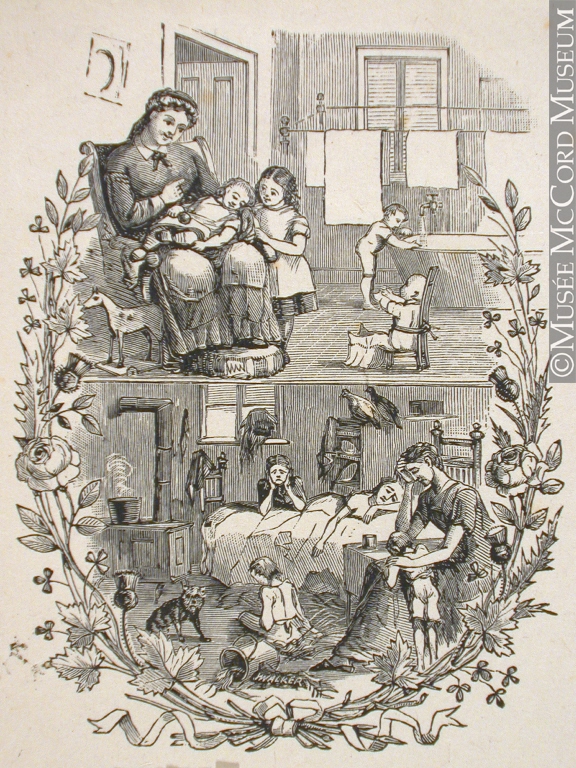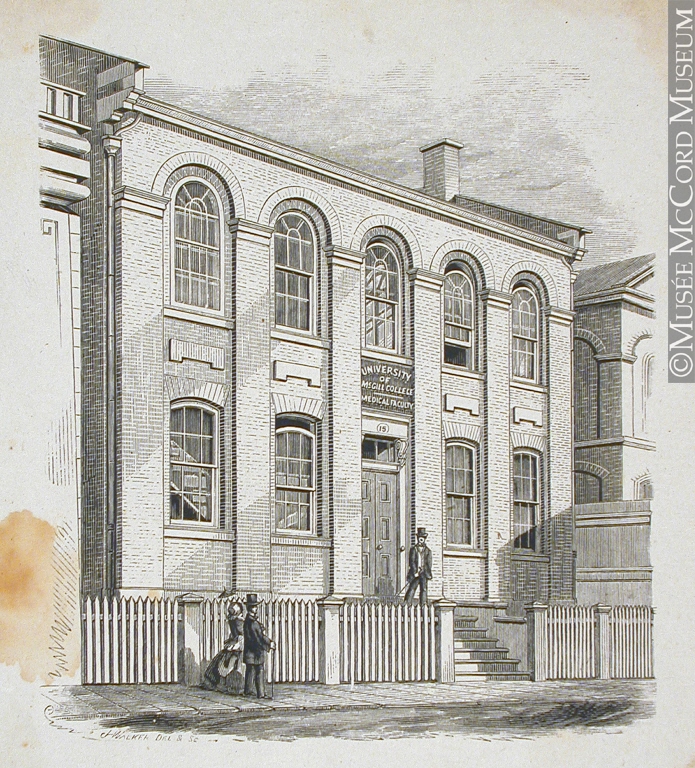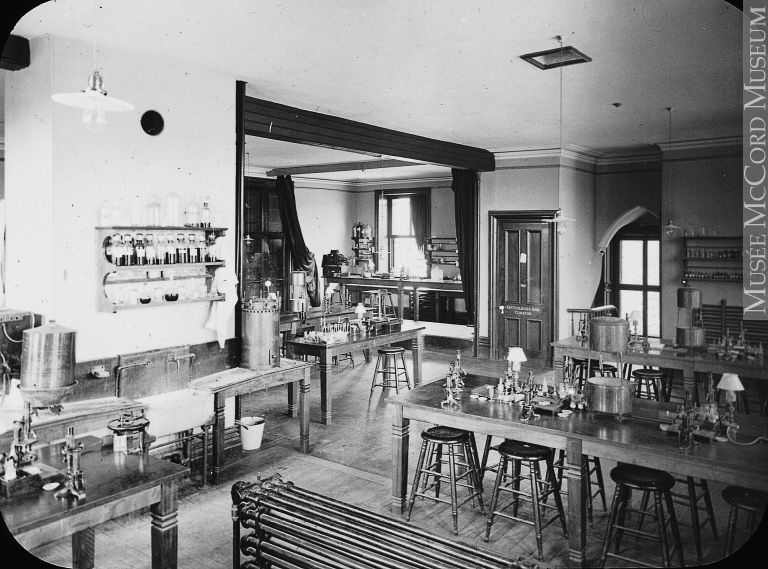As Montreal celebrates its 375th anniversary in 2017, each month we will look back at the history of the McGill Faculty of Medicine and explore how it has been so closely intertwined with the city and the Montreal community, beginning this month with the origin of the Faculty.
In the decades before McGill’s Faculty of Medicine was founded, health care in Montreal was delivered by a hodgepodge of private and church-run charity organizations. Apothecaries, midwives and private physicians provided medical care to the city’s population, which was routinely ravaged by outbreaks of typhus, smallpox and cholera. Hôtel-Dieu had been around since 1644, but by the 19th century the city had outgrown its only hospital.
Medical training was also lacking in the Canadian colonies; with no university-based medical school, most physicians had to travel to Europe to train. James McGill’s 1813 bequest of his country estate, Burnside Place at the foot of Mount Royal, and £10,000 to establish an institute of higher learning changed all that.
Opened in 1829, the new McGill College set out to join forces with the Montreal Medical Institution (MMI), a proprietary medical school established in 1823. The MMI could issue medical

licences to its graduates but couldn’t grant medical degrees because it had no royal charter. McGill College, on the other hand, had a royal charter but was in danger of losing it because it had yet to form a faculty in any subject.
In a mutually beneficial arrangement, the MMI merged with McGill and became its Faculty of Medicine, and the Montreal General Hospital (MGH), from which the MMI had sprung, became its teaching hospital. The MGH had opened in 1819 with funds raised by Montreal’s English community after a failed petition to the Lower Canada House of Assembly to build a second hospital to serve the city’s sick poor. The MMI’s four founders were all MGH staff physicians. One of them, Dr William Robertson, became McGill’s first head of medicine. The other three – Dr. John Stephenson, Dr. William Caldwell, and Dr. Andrew Fernando Holmes – all took professorships at the faculty and played important roles in the development of the school and in public health in Montreal, with Holmes eventually becoming the first Dean of the Faculty.
Four years after it opened, in 1833, McGill College awarded its first degree in medicine to William Leslie Logie. It was the first medical degree awarded in the Canadian colonies.

At McGill, as at other medical schools around the world, medical knowledge expanded immensely during the 19th century, with decisions about care becoming ever more based on scientific evidence. As a result, the health of Montreal’s citizens gradually improved.
During this period, the study of pathology gained ground at the university, enhancing both medical training and doctors’ understanding of disease. Hygiene also improved in the MGH’s wards and operating theatres and in the city in general, leading to fewer infections and reducing the spread of deadly communicable diseases like cholera.
February 2, 2017
